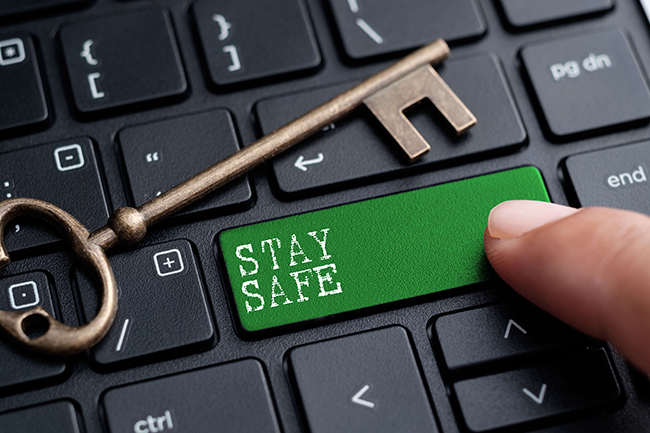
From the stories we hear in the news on a regular basis, it’s easy to say the internet can be a dangerous place. Of course, it can be used in many positive ways, for education, communication, or inspiration. However, these amazing things are often replaced by the harsh negatives that surround the online world. Below, we explain the 5 best tips to stay safe behind a screen.
Firstly, how do you keep yourself safe?
- Never give out any personal information, including real name, address, phone number, and age.
- Think before you share. Once an image has been posed online, it’s out of your control; most people will be able to see and share it and may even be able to download it. Also make sure that anything you say online respects others and their views and opinions, even if you don’t agree.
- Don’t accept or talk to people you have met only online, and make sure you only accept people that you know. Never meet up with someone you haven’t met in person before, on your own, and only meet up in a public place and with a trusted adult. If they say no to this, or say anything else that you feel is inappropriate or something that makes you feel uncomfortable, block and report them immediately after telling a parent, guardian, teacher, or friend.
- Ensure your privacy settings are as high as possible, so that no-one you don’t know can see your information, images etc. To be extra careful, use a complex password that is difficult to guess; it is also a good idea to change it regularly.
- If you see something online that makes you feel unsafe, unsure, and uncomfortable, then leave the website. You can report it to the site if you see it on social media, and there are sometimes ‘CEOP’ report buttons to keep you safe. Also tell a trusted adult immediately.
What signs tell you to block someone, never contact them again, and tell a trusted adult?
- If the person insists on knowing your name, phone number, email address, or any other personal information.
- If the person sends you anything that makes you feel uncomfortable or unsafe.
- If the person wants to keep their chats with you a secret.
- If the person tells you that you will get into trouble if you let an adult know what has happened between the two of you.
- If the person gives you information and tells you not to let anyone else know about it.
How can you keep your device safe?
- Use anti-virus software. Make sure to keep it updated!
- Check a website is secure. Before entering any private information, look for the padlock symbol close to the web address.
- Think before you click. If you receive a text or email from a stranger, think before clicking on a link or attachment – it could contain a virus.
- Cover you webcam. If you’re not using the webcam: unplug it, cover the lens, or point it at a blank wall.
- Check your privacy settings. You can use your privacy settings to control who is able to see your profile, images, and information.
How can you help to solve cyber-bullying online?
- Report and block the person.
- Don’t reply to nasty messages.
- Talk to someone about it, whether that’s a parent, family member, friend or teacher.
- If it’s someone else who’s being bullied, report the bully also. Some people are not brave enough to speak out for themselves – do it for them. Don’t be a bystander; in some ways, that’s just as bad as being the bully.
- Learn from others’ mistakes. Don’t bully people online (or elsewhere) and always report inappropriate comments.
Now you have read this, we hope you are well educated on how to keep yourself and others safe online. Thank you for reading!
Please take a look at this article: My Cyberbulling Story
By Rachel, Kira and Kelsey
(1).png)
.png)



